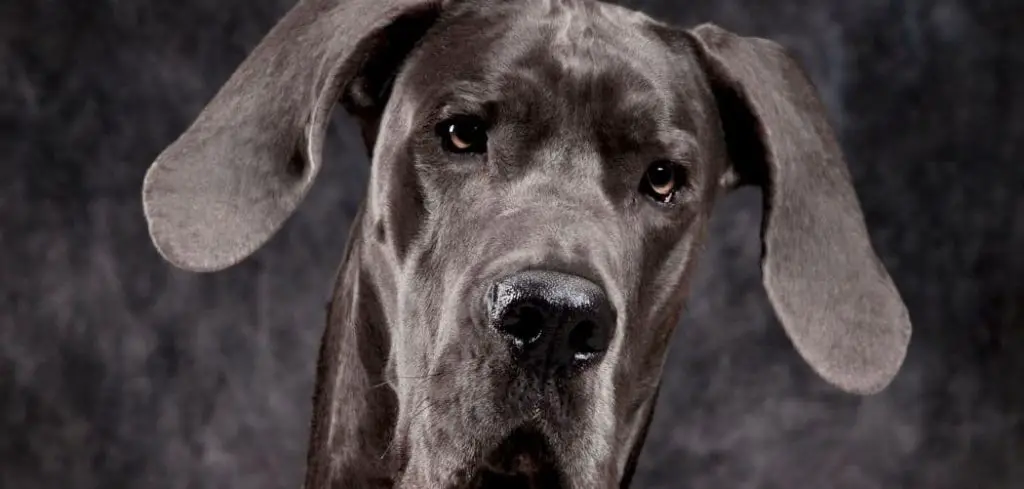Noticing your old dog walking and pooping at the same time can feel unusual and sometimes worrisome.
While younger dogs often squat and remain still when they relieve themselves, senior dogs may lose that control and begin moving while defecating.
We outline the reasons why an old dog may walk and poop at the same time, what you can do, and when to seek veterinary help.
Old Dog Walks and Poops at the Same Time — Why It Happens
An old dog walking and pooping at the same time usually happens because of weakened muscles, nerve issues, arthritis, or gastrointestinal problems. In many cases, it’s linked to aging changes in the spine, joints, or digestive tract that make it harder for dogs to posture normally.
Sometimes, cognitive decline or anxiety can also contribute to unusual bathroom behaviors.

Old Dog Walks and Poops at the Same Time: Common Causes
Muscle Weakness and Aging
As dogs get older, the muscles that help them hold posture while defecating begin to weaken. This can make it uncomfortable or physically challenging to squat in one position for long.
Instead of straining in one spot, an old dog may keep moving while pooping. Owners often notice a trail of stool or their dog pacing slightly as the bowel movement happens.
This is usually an age-related change but can be managed with supportive care and veterinary guidance.
Read more: Old Dog Pooping and Peeing in House at Night (Why it happens)
Arthritis and Joint Pain
Arthritis is one of the most common health issues in senior dogs. Painful or stiff joints make it difficult to squat and hold position during bowel movements.
When squatting is uncomfortable, an old dog may try to relieve themselves while still walking, simply because it hurts to remain still. Other signs may include stiffness after resting, reluctance to climb stairs, or slow movements on walks.
Arthritis-related changes should not be dismissed, as pain management can greatly improve quality of life.
Nerve or Spinal Problems
Conditions affecting the spine or nerves, such as degenerative myelopathy or slipped discs, can reduce muscle coordination and bowel control.
If the nerves that control defecation are weakened, an old dog may begin pooping while still walking because they cannot control the timing or posture. Owners may also notice back leg weakness, wobbling, or dragging paws.
Spinal issues can worsen over time and need careful management from a veterinarian.
Gastrointestinal Upset
Sometimes, the reason an old dog walks and poops at the same time is less about mobility and more about urgency.
Digestive upset, such as diarrhea, colitis, or dietary intolerance, can cause stool to come out suddenly before the dog has time to squat.
You may notice loose stool, urgency, straining, or increased frequency. Dogs with GI issues often cannot wait or position themselves properly.
If this happens repeatedly, it may signal an underlying digestive condition that requires treatment.
Cognitive Dysfunction (Dog Dementia)
Cognitive decline in senior dogs can change how they act during daily routines, including bathroom habits. A dog with dementia may forget how to squat properly or feel disoriented during elimination.
Owners often report pacing, restlessness at night, or house accidents alongside unusual pooping behaviors. Walking while pooping may be one of several signs of confusion.
While cognitive dysfunction cannot be cured, management strategies and medications may help reduce symptoms.
Anxiety or Restlessness
Some dogs become anxious or restless in old age. This can cause them to keep moving, even while relieving themselves.
Stress from changes in the household, separation anxiety, or even discomfort from aging can lead to pacing during bathroom breaks. If your dog seems unsettled or nervous while pooping, anxiety may be a factor.
Although less common than medical causes, it is worth considering if other health issues have been ruled out.
What to Do If Your Old Dog Walks and Poops at the Same Time
If your old dog is suddenly walking while pooping, the first step is to schedule a veterinary exam. Many causes—such as arthritis, nerve issues, or gastrointestinal upset—can be managed with treatment.
At home, you can help by keeping your dog on a consistent feeding and bathroom routine. Regular exercise (adjusted for their age) supports digestive health and muscle strength.
For dogs with arthritis, joint supplements, weight management, and soft bedding can reduce discomfort. A ramp or easier outdoor access may also help.
If stool is loose or your dog seems urgent, adjusting diet under veterinary guidance may improve digestion. Always introduce new foods gradually.
For cognitive decline or anxiety, keeping routines predictable, using night lights, and providing comfort can make bathroom habits less stressful.
When to Call or Visit Your Vet
If your old dog only occasionally walks and poops at the same time, it may not be urgent. But consistent changes in bathroom behavior should not be ignored.
You should call your vet if your dog also shows signs of pain, stiffness, back leg weakness, or difficulty controlling bowel movements. These could point to arthritis or spinal disease.
If your dog’s stool is loose, bloody, or unusually frequent, schedule a checkup to rule out gastrointestinal illness.
Veterinary attention is especially important if your dog seems disoriented, anxious, or develops other unusual behaviors alongside walking while pooping. These could be signs of dementia or another age-related condition.
Read more: Old Dog Collapsed and Pooped (What it means)
Key Takeaway
An old dog walking and pooping at the same time is often linked to age-related changes like weak muscles, arthritis, or nerve problems, though digestive issues and cognitive decline can also play a role.
While the behavior may seem odd or concerning, it usually signals that your senior dog is struggling with control, comfort, or coordination.
With veterinary guidance, lifestyle adjustments, and supportive care, you can help your old dog stay comfortable and maintain dignity during their senior years.
